Vacancies
Vacancies
Are you interested in exploring careers in UN City?
This page provides vacancy announcements for positions across the 10 UN agencies based in UN City.
Please be aware that these listings may not cover all available roles. For the latest and most complete information, we recommend visiting each agency’s dedicated careers page directly.
Explore career opportunities within the United Nations system here.
For vacancies and internships in UN City, please see below.
Current Vacancies
-
Head Chef
Deadline: 26 January 2026
-
Sous Chef
Deadline: 27 January 2026
-
Public Partnerships Intern – UN Women Nordic Office (NORDIC SPEAKERS ONLY)
Deadline: 27 January 2026
-
Last Mile Assurance Associate, Supply Chain Management Unit (SCMU)
Deadline: 30 January 2026 05:59 AM
-
Consultancy - Stock Management Project Analyst, Supply Chain Management Unit (SCMU)
Deadline: 30 January 2026 05:59 AM
-
Consultancy - Inventory Management Associate, Supply Chain Management Unit (SCMU)
Deadline: 30 January 2026 05:59 AM
-
Temporary Appointment - Contracts Associate - Contraceptives, Supply Chain Management Unit (SCMU)
Deadline: 30 January 2026 05:59 AM
-
Communication and Social Media Intern
Deadline: 2 February 2026
Career Options in the UN system
Learn more about career options in the United Nations below and on the official UN website here
Professional and Higher Categories
Staff members in the Professional and higher categories (P and D) are normally internationally recruited and are expected to serve at different duty stations throughout their career with the Organization. Openings for professional jobs can be found at all duty stations across the global United Nations Secretariat.
What education do I need?
Normally, it is required that you have an advanced university degree for the professional and director level positions. It is, however, frequently accepted that if you have a first-level university degree, combined with qualifying work experience, you meet the educational requirements.
Positions in certain job families, including military, civilian police, medical, conference services may have different standards for the minimum educational requirements, which are accordingly reflected in their respective job openings. Positions from job families that require specialized studies, e.g., Medical Doctors, require an advanced university degree, which cannot be substituted by a combination of a first-level university degree and experience. Positions in some other areas, mainly language positions, might require only a first level university degree for the minimum educational requirements.
Your work experience should be relevant to the job for which you are applying; each job may also have specific requirements, which are specified in the opening. For mid-career and senior level positions, progressively responsible work experience is required. As you acquire more relevant work experience you can progressively apply for higher positions.
If you recently graduated from university and you have limited or no work experience, you may qualify to take the Young Professionals Programme(YPP) recruitment examination.
There are six official languages at the United Nations: Arabic, Chinese, English, French, Russian and Spanish. Two of these, English, and French, are the working languages. To work for the United Nations, you need to have excellent command of either English or French. Knowledge of an additional language is an asset but is not required for most jobs. If there are additional language requirements, as may be the case for some language positions, they are specified in the respective job openings.
There is a wide range of jobs in the nine job networks: Economic, Social and Development; Information and Telecommunication Technology; Internal Security and Safety; Legal; Logistics, Transportation and Supply Chain; Management and Administration; Political, Peace and Humanitarian; Public Information and Conference Management; and Science.
Work in the Professional category generally demands a high degree of analytical and communication skills, substantive expertise and/or managerial leadership ability. Typically, these positions require judgment in analyzing and evaluating problems as well as in decision-making involving discretionary choices between alternative courses of action. They also require the understanding of an organized body of theoretical knowledge at a level equivalent to that represented by a university degree. While this knowledge is customarily and characteristically acquired through formal education, it may, in some fields of learning or specialized disciplines, be acquired through other training, self-study, or practical experience.
Directors (D-1 and D-2 levels) represent the highest level on the career staffing structure of the Organization. As a Director you manage a programme of the Organization. You are also expected to provide leadership in formulating and implementing the substantive work programme of an office, determine priorities, and allocate resources for the completion of outputs and their timely delivery. Senior professionals hired for positions at the P-6 and P-7 level typically work as senior advisers or experts, bringing several years of analytical and research experience to the United Nations

Language Professionals
Are you a language professional seeking to join the UN language services? The United Nations is one of the world’s largest employers of language professionals and welcomes applications from across the globe. There are career opportunities in translation, interpreting, editing, verbatim reporting and other fields.
The first step is to apply to take one of our competitive examinations for language positions or CELPs.
These examinations are used to fill positions at United Nations Headquarters in New York, at the United Nations Offices at Geneva, Nairobi and Vienna, and at the Regional Commissions located in Santiago, Bangkok, Beirut and Addis Ababa.
Language staff work mostly with the six official languages of the United Nations. These are Arabic, Chinese, English, French, Russian and Spanish. Applicants for language positions must have a perfect command of one official language and excellent knowledge of at least one other. The one exception is the small German Translation Section at UN Headquarters in New York, which requires a perfect command of German.
In addition to Competitive Examinations for Language Positions (CELPs), examinations for placement on the Secretariat’s Global Language Register (GLR) of language professionals eligible for contractual work or temporary appointments are organized on an as-needed basis.
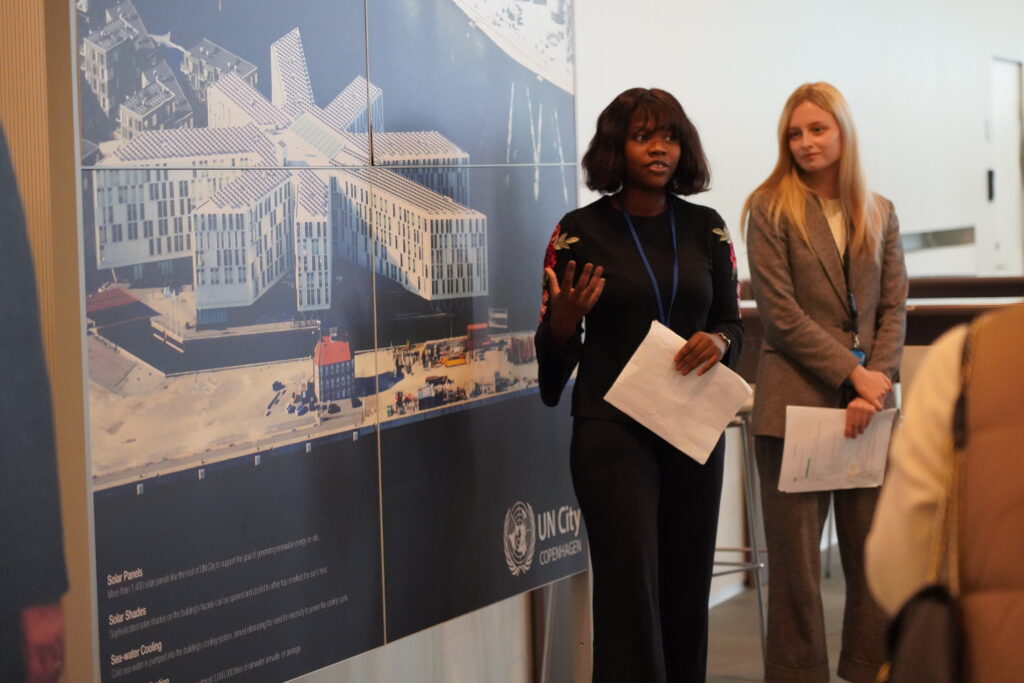
Young Professionals Programme
The UN Young Professionals Programme (YPP) is a recruitment initiative for talented, highly qualified professionals to start a career as an international civil servant with the UN Secretariat. It consists of an entrance examination process and professional development once those who are successful start their career with the UN.
Junior Professional Officer Programme
If you are a skilled graduate with energy, enthusiasm and an eagerness to develop your skills and knowledge of the multilateral system, the United Nations Junior Professional Officer (JPO) Programme (formerly known as Associate Experts Programme) welcomes your application. As a JPO, you will be recruited under bilateral agreements between the United Nations and donor countries. While some countries only fund JPO positions for their own nationals, some countries also sponsor candidates from developing countries.
The main goal of the JPO Programme is to offer young professionals an opportunity to get hands-on experience in multilateral international cooperation at the United Nations, while supporting the various mandates of the Organization such as the 2030 Agenda for Sustainable Development.
More information on the programme and relevant links with donor countries
Areas of expertise
The number of sponsored positions varies from year to year and by donor country. Initially you are granted a one-year appointment which may be extended for few more years, with the agreement of the donor country, and on the basis of good performance.
The following disciplines are some of those considered by donor countries for the United Nations JPO Programme:
- Political science
- Social science
- Law
- Human Rights
- Programme Management
- Public Administration
- Economic Affairs
- Environmental Affairs
- Gender Affairs
Other specialties may be required by specialized Agencies of the United Nations System and sponsored by the donors under their programmes.
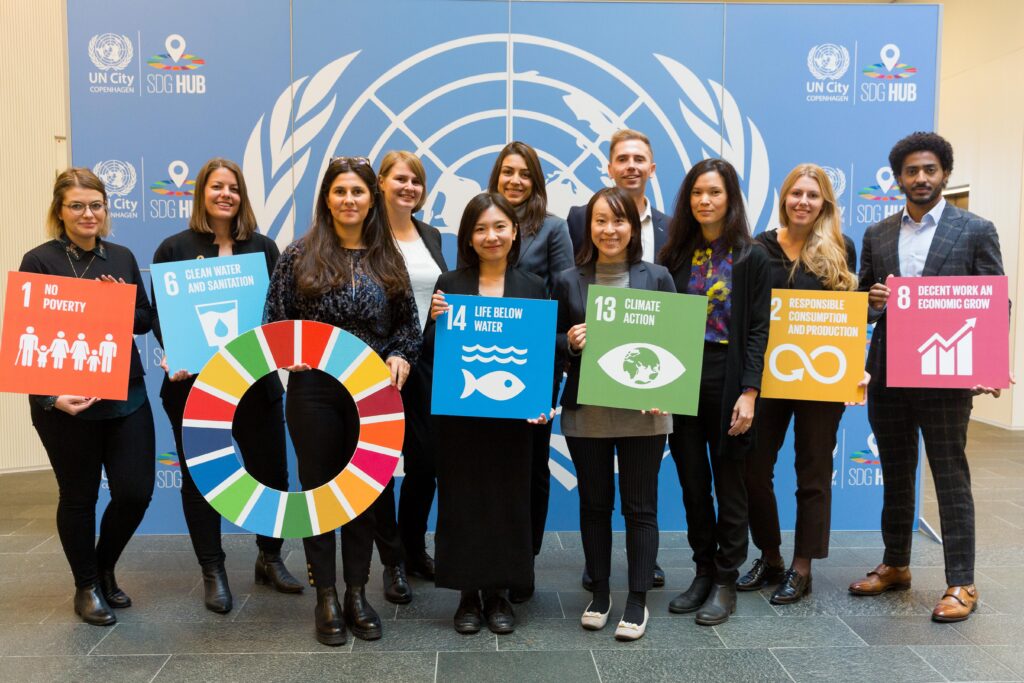
Field Service Category
Staff in the Field Service category are normally recruited internationally to serve in field missions. You are expected to be highly mobile and to serve in different locations during your career.
Field Service staff members provide administrative, technical, logistics and other support services to United Nations field missions. You are required to have as a minimum a High School diploma or equivalent; some positions may require a technical or vocational certificate.
There are four levels of the field service category: FS-4 through FS-7. As you acquire more relevant work experience you can progressively apply for higher positions.
| Mid-level Field Service | Senior level Field Service | ||
| FS-4 | minimum 6 years work experience | FS-6* | minimum 10 years work experience |
| FS-5 | minimum 8 years work experience | FS-7* | minimum 12 years work experience |
* The minimum number of years of relevant experience is reduced for candidates who possess a first-level university degree; for FS-6 a minimum of 5 years of experience is needed and for FS-7 a minimum of 7 years of experience is needed.

National Professional Officers
National Professional Officers are normally locally recruited and perform functions at the professional level. The qualifications for National Professional Officers are the same as for the Professional category and require as a minimum a first-level university degree. Jobs for National Professional Officers can only be found in non-headquarters duty stations.
National Professional Officers are nationals of the country in which they are serving and their functions must have a national context, i.e. functions that require national experience or knowledge of the national language, culture, institutions, and systems. Examples of these positions include human rights officers, political affairs officers, legal officers, medical officers, child protection officers, humanitarian affairs officers, interpreters and civil engineers.
There are five levels of National Professional Officers, A through E. The higher the level, the more responsibilities the job requires and the more work experience is necessary.
- minimum 1 to 2 years of work experience
- minimum 2 to 3 years of work experience
- minimum 5 years of work experience
- minimum 7 years of work experience
- over 7 years of work experience
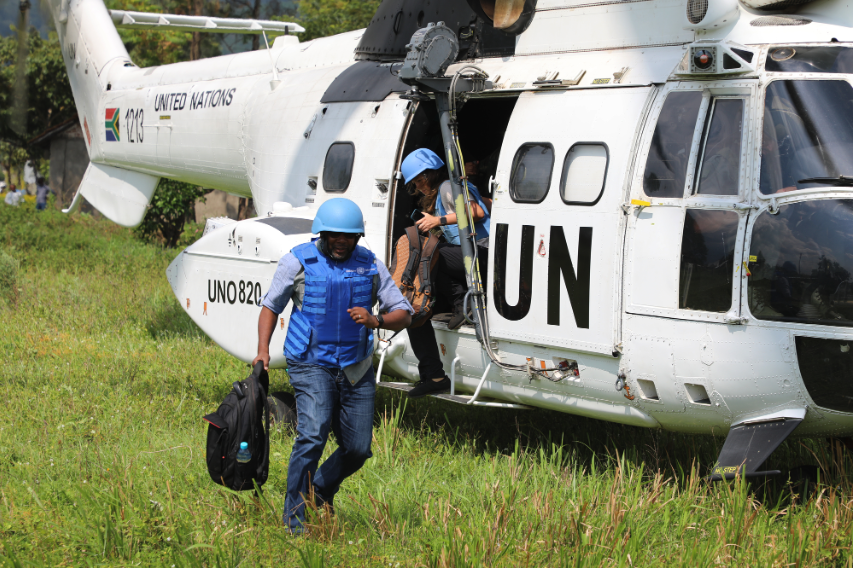
General Service and Related Categories
General Service
The functions in the General Service and related categories include administrative, secretarial and clerical support as well as specialized technical functions such as printing, security and buildings maintenance.
There are jobs in all the nine job networks: Economic, Social and Development; Information and Telecommunication Technology; Internal Security and Safety; Legal; Logistics, Transportation and Supply Chain; Management and Administration; Political, Peace and Humanitarian; Public Information and Conference Management; and Science.
The work carried out by General Service staff supports the functioning of the Organization and is typically procedural, operational or technical in nature. The work in these categories ranges from routine duties to varied and complex assignments. The knowledge of the subject matter and higher-level skills are generally developed through long experience and familiarity with applicable procedures, regulations and precedents or projects of the Organization in a narrow technical field or in an administrative support activity. The higher the level of the job, the more complex the functions become along with higher levels of responsibility.
Staff in the General Service and related categories are generally recruited locally from the area in which the particular office is located but could be of any nationality. As a result, such staff members are usually not expected to move between different duty stations.
At the Organization’s Headquarters in New York, jobs such as drivers, electricians, building management and printing staff fall under the related category called Trades and Crafts (TC). Similarly, Security Officer jobs in New York are advertised as a separate category called Security (S), and tour guides in New York as Public Information Assistants (PIA). Another related category is the Language Teachers (LT), for which positions can be found only in New York and Geneva. In all other duty stations these jobs are included, and listed, under General Service.
Your work experience should be relevant to the job for which you are applying and each job may also have specific requirements, which are specified in the job opening. For mid-career and senior level positions, progressively responsible work experience is required. As you acquire more relevant work experience you can apply for higher level positions
You can move from the General Service and related categories to the professional category only by passing a special competitive examination subject to certain conditions.
What qualifications do I need to work in the General Service and related categories?
The following requirements have to be met to be considered for General Service jobs:
- High school diploma or equivalent.
- Minimum age of 18 years.
- Required number of years of work experience relevant to the job and its level, as specified in the job opening
- Language requirements depending on the job and the location of the office. Most jobs require fluency in one of the two working languages, English or French.
- There might be additional requirements which are listed in the specific job opening. Always check to make sure you meet the minimum requirements for the job for which you are applying.

Consultants and Individual Contractors
If you would like to dedicate yourself to a project in the name of the United Nations rather than a long-term career, you have options.
You can:
- Apply directly to vacancies that are published for consultants or individual contractors
- Work for an institution or corporation that has entered into a contract with the UN through a procurement process
How does a Consultant differ from an Individual Contractor?
A consultant is a recognized authority or specialist in a specific field, engaged by the Organization in an advisory or consultative capacity. They perform results-oriented functions which normally involve analyzing problems, directing seminars or training courses, preparing documents for conferences and meetings, or writing reports on matters within their area of expertise. Consultants usually will have a significant number of years of relevant experience and are highly qualified in their area of expertise.
An individual contractor provides the Organization with expertise, skills or knowledge for the performance of a specific task or piece of work which would be short-term by nature. The assignment may involve full-time or part-time functions similar to those of staff members.
Duration of Assignment
Consultants provide services up to a maximum of 24 months in a 36-month period.
Individual contractors provide services up to a maximum of 6, or in special circumstances, 9 work-months in any period of 12 consecutive months.

How are candidates selected from the Consultant Roster?
Experts who are registered in the Consultants Roster are available for consideration whenever relevant opportunities arise. Shortlisted candidates are contacted directly by the relevant team using the email address provided when you register in Inspira. Experts who have joined the Consultant Roster are also invited to actively apply to consultancy job openings posted in Inspira and on this website.
What are my benefits?
A remuneration fee which can be set daily, monthly or based on deliverables which is agreed upon before signing the contract with the Organization. The fee is based on the level of work in terms of responsibilities and complexity of the assignment, knowledge, skills, qualifications and experience required for the position. Paid leave and insurance are not part of a consultant’s or contractor’s benefits package. If you need to travel, the Organization will cover travel costs, including a daily subsistence allowance.
More information for consultants
Internship Programme
An internship at the UN could be the ideal start if you are considering a career in the Organization. It will give you exposure to high-profile conferences, political decision making or work on the ground, as well as the opportunity to contribute to the projects and mandates of the United Nations. You can apply for any internship around the world, regardless of nationality.
As an intern, you will:
- Enhance your educational experience through practical work assignments
- Deepen your knowledge and understanding of the Organization’s goals, principles and activities
- Work in an international environment, and network with international civil servants, career professionals and senior management
- Provide the UN with assistance in your area of expertise
As part of a team, interns can do things like the drafting of documents, analysis of data, research, the organization of conferences or events, work on media campaigns and outreach, and much more.
Anyone who is
- enrolled in the final year of an undergraduate university programme (e.g., a bachelors programme),
- enrolled in a graduate programme (e.g., a master’s or Ph.D. programme),
- a recent graduate with a university degree.
Internships are available on a part-time or full-time basis at any time throughout the year and vary in length according to the availability and academic requirements of the intern, as well as the needs of the UN. The minimum duration is two months full time and the maximum is six months.

Our Member States have decided that the UN Secretariat cannot provide financial compensation to interns at this point but conversations are ongoing. Some UN agencies, though, do offer internship positions with various types of monetary support.
Yes, you may get academic credit from your institution of higher education for the internship. Check with your university to confirm their academic credit policy for internships.
Your internship will not automatically lead to a job with the UN, but with the experience you have acquired during your time as an intern you might be interested in applying for General Service or consultancy positions.
If you want to apply to positions at the Professional and Higher or Field Service levels, we ask you to let at least six months pass after the end of your internship before you submit your application, and ensure that you fulfill not only the educational but also the work experience requirements that are outlined in each job opening.
View current internship opportunities in Job Openings in the UN.
Scroll up to see opportunities in UN City
United Nations Volunteers
If you are interested in making an impact on global peace and development, explore the latest opportunities with United Nations Volunteers (UNV).
Every year, around 13,000 skilled individuals from diverse backgrounds serve as UN Volunteers in some 170 countries around the world, representing 180 nationalities.
UN Volunteers serve across the three pillars of the United Nations system: development, peace and security, and human rights. They play a vital role in community development, crisis and emergency response, peacekeeping, humanitarian assistance, among others.
UN Volunteers have a wide range of skills, qualifications and expertise, and most importantly they have an extensive reach at the local level.
Together with communities, governments, United Nations entities, and civil society organizations, UN Volunteers serve at the forefront of sustainable development initiatives.
UN Volunteers act with integrity and ingenuity, promoting volunteerism for peace and development within and beyond their assignments.
- Volunteer abroad
- Volunteer in your country
| Benefits for onsite volunteers | International | National |
| Entry Lump sum | × | × |
| Travel tickets (entry on duty and repatriation) | × | |
| Volunteer Living Allowance (VLA) per month | × | × |
| Insurance (medical, life, disability) | × | × |
| Annual Leave (2.5 days/month) | × | × |
| Home Visit (long-term assignments) | × | |
| Exit Allowance | × | × |
| Access to training platforms and programmes | × | × |
Online Volunteering offers a flexible platform to tackle today’s sustainable development challenges from any device, anywhere in the world. The assignments are task-based, up to 20 hours per week, for a duration not exceeding 12 weeks.
Online Volunteers gain first-hand practical experience in the development context with United Nations entities, governments and civil society organizations worldwide.
Online Volunteers are not under a UNV contract, therefore they do not receive a Volunteer Living Allowance (VLA) or any other financial compensation or benefits. However, upon assignment completion, they receive an electronic certificate of appreciation, acknowledging their valuable contribution.
UNV is actively seeking volunteers with diverse talents, just like you!
- Access the UNV website to learn about volunteering opportunities.
- Click on Unified Volunteer Platform (UVP) to register in UNV’s Talent Pool and explore current opportunities.
- Complete your profile and apply for UN Volunteer and Online Volunteer assignments that interest you.
- Find out how UN Volunteers have made a difference by reading the UNV Annual Report 2023 (unv.org).
Temporary Jobs
Are you the type of person who is still making decisions about your career, who is not quite ready yet to take the plunge, make a long-term professional commitment or become attached to a job or calling? Perhaps you like the idea of change, career breaks and moving around. Or alternatively, you may just be interested in getting your toe through the door at the United Nations to see what we do and whether you would be interested. If you are this person then a temporary position at the United Nations might be just what you need.
Temporary appointments are used to fill positions a period of less than one year to meet seasonal or peak workloads and specific short-term requirements. Temporary appointments may, however, be extended beyond one year only when there are surge requirements, operational needs related to field operations and where circumstances have allowed for special projects with finite mandates. Temporary appointments, which include the initial appointment and any subsequent extensions, may not exceed a total period of 24 months at any given time. Staff members holding a temporary appointment are considered external candidates when applying for job openings.
Temporary job openings are advertised in Inspira the Organization’s talent management platform. Applicants interested in applying for these positions must complete and submit their application through Inspira. Positions that are available for such short-term requirements are advertised with reference to their temporary nature. Please use the Job Search function on the homepage to find Temporary Job Openings.
The application procedure for project personnel is the same as for any other position.
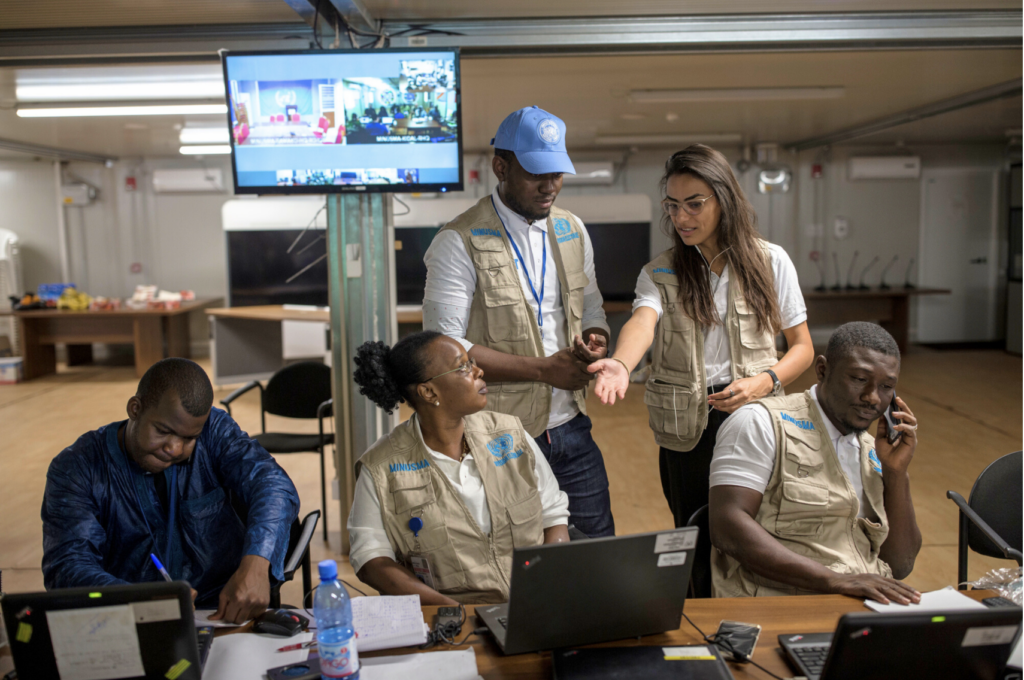
Senior Appointments
As is the practice in many other international institutions, one arrives at the highest positions in the Secretariat either by appointment of the Organization’s legislative organs or Chief Administrative Officer.
These positions include:
- Secretary-General: Appointed by the General Assembly, on the recommendation of the Security Council
- Deputy Secretary-General: Appointed by the SecretaryGeneral following consultations with Member States
- Under-Secretary-General (USG): A Head of Department, appointed by the Secretary-General
- Assistant Secretary-General (ASG): A Head of Office, appointed by the Secretary-General
The Secretary-General has wide authority to appoint senior staff at the ASG and USG levels as well as special envoys at all levels. However, the appointment of a number of senior officials is subject to specific requirements set forth in General Assembly resolutions or related legislative documents.
For example:
- The Under-Secretary-General of the Office of Internal Oversight Services is appointed by the Secretary-General following consultations with Member States and approval by the General Assembly.
- The Special Representatives of the Secretary-General and the Force Commanders in peacekeeping missions are appointed according to a long-standing practice that the Secretary-General informs the Security Council of his intention to appoint these officials before a decision is taken.
- A Special Representative or Special Envoy is a highly respected expert who has been appointed by the Secretary-General to represent him on a set of critical issues. This typically involves continued negotiations with Governments at the highest levels on issues such as human rights, peace-building and peacekeeping, conflict resolution and post conflict as well as post emergency recovery. A Force Commander is the head of United Nations peacekeeping troops where they are deployed.
- Assistant Secretary-General (ASG): A Head of Office, appointed by the Secretary-General
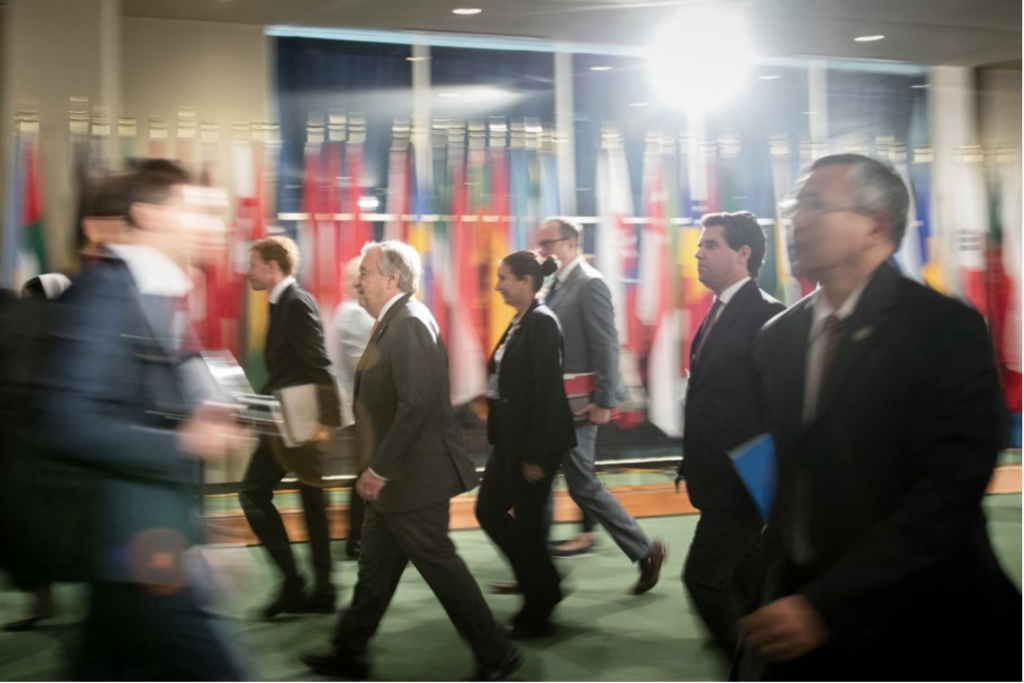
Quick links
See also
Learn more about the work of the United Nations and UN City in Copenhagen, Denmark.
Stay updated with the latest news from UN City
Subscribers to the UN City newsletter receive regular updates on public events and activities taking place in UN City Copenhagen as well as information about career opportunities and special UN stories. Membership is non-binding and free of charge.
